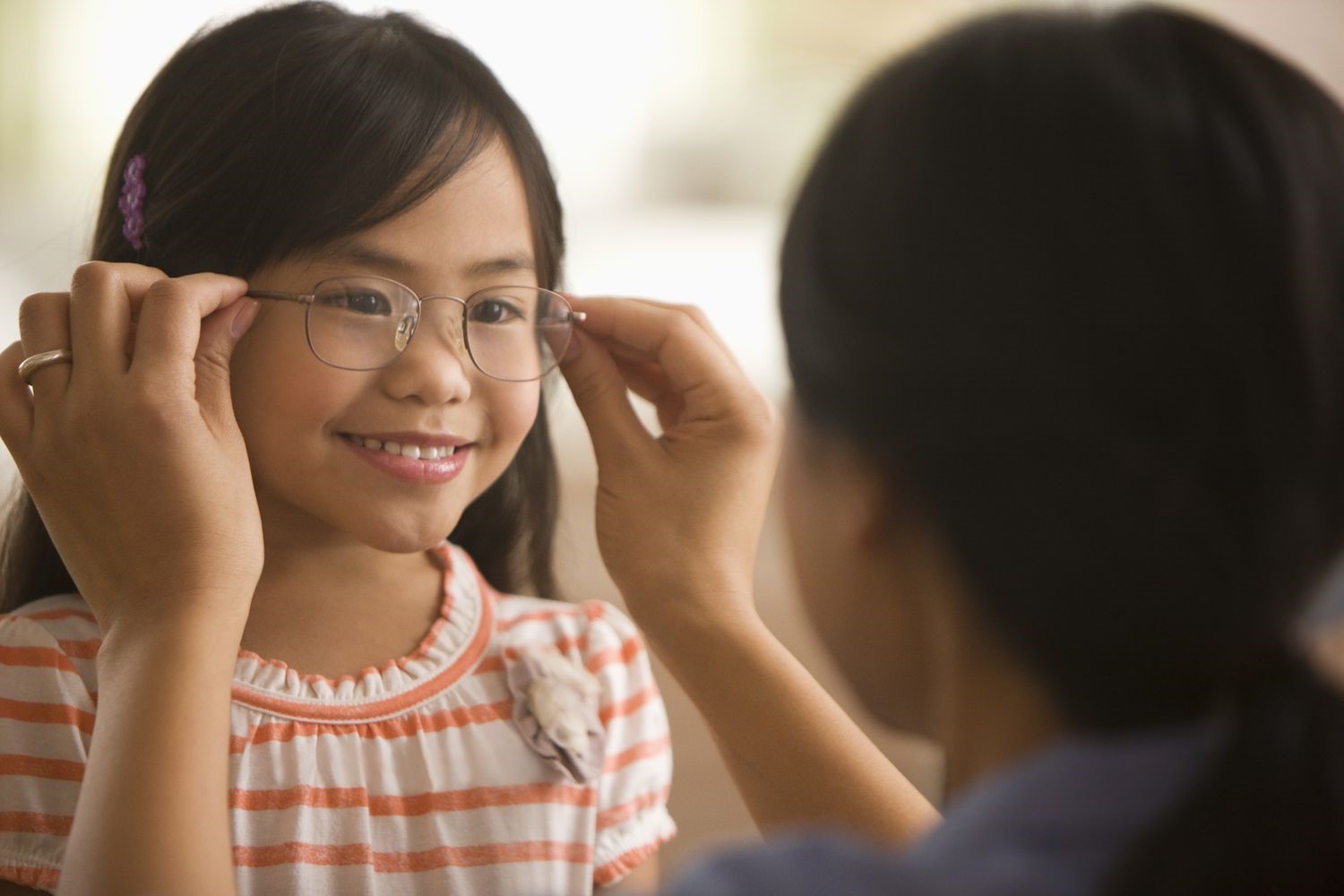Home » Myopia
Myopia
Also known as nearsightedness, is a condition that causes distant objects to appear blurry. It affects over a third of the population, with more and more children being affected yearly. Myopia is most often caused by a longer than average eyeball.
Myopia often progresses, with the prescription becoming stronger over time, often as the eye continues to grow. With progressive myopia, we are concerned for the potential of retinal tears, holes or detachments which often require surgery to treat. Sometimes the condition becomes degenerative myopia, where the eye continues to grow into adulthood, and irreversible damage and eventually vision loss occur.

Important
- Your child may complain of struggling to see the board at school, move closer or squint to try to see better
- Family history! One parent having myopia increases the likelihood the child will have it; two parents will increase the chances even more!
- Studies have shown being outdoors and exposure to natural light decreases the chances for myopia, while too much time on the phone, computer, Ipad increases it.
- Wearing glasses with a weaker prescription than needed increases the progression of myopia! It was once believed that giving a weaker glasses prescription would treat the myopia – this is absolutely false.
Treatment
Glasses are the most important component to treating myopia! For children, making sure the prescription is up to date and accurate, and wearing glasses full time is critical. Frequent eye exams as directed by your doctor are key.
Depending on the severity of the condition and/or how quickly it progresses, your eye doctor may recommend interventions to slow down your child’s myopia.
Options include:
- Atropine drops: these drops are instilled in the affected eye(s) at night before the child goes to sleep. Studies have shown promising results that 0.02% Atropine helps slow the progression of myopia. Potential but rare side effects include sensitivity to light and blurry vision up close
- Orthokeratology: hard contact lenses that are worn during sleep – the lenses reshape the cornea during sleep and provide vision correction without having to wear glasses or lenses during the day. The lenses must be worn every night.
- Multifocal contact lenses: although we do not offer this option in our office, multifocal contact lenses are a great option for some and if you are interested we can refer to another doctor for proper fitting of these lenses
- Progressives: these are special glasses where the prescription of the lens changes as the child looks from the top of the lens towards the bottom.